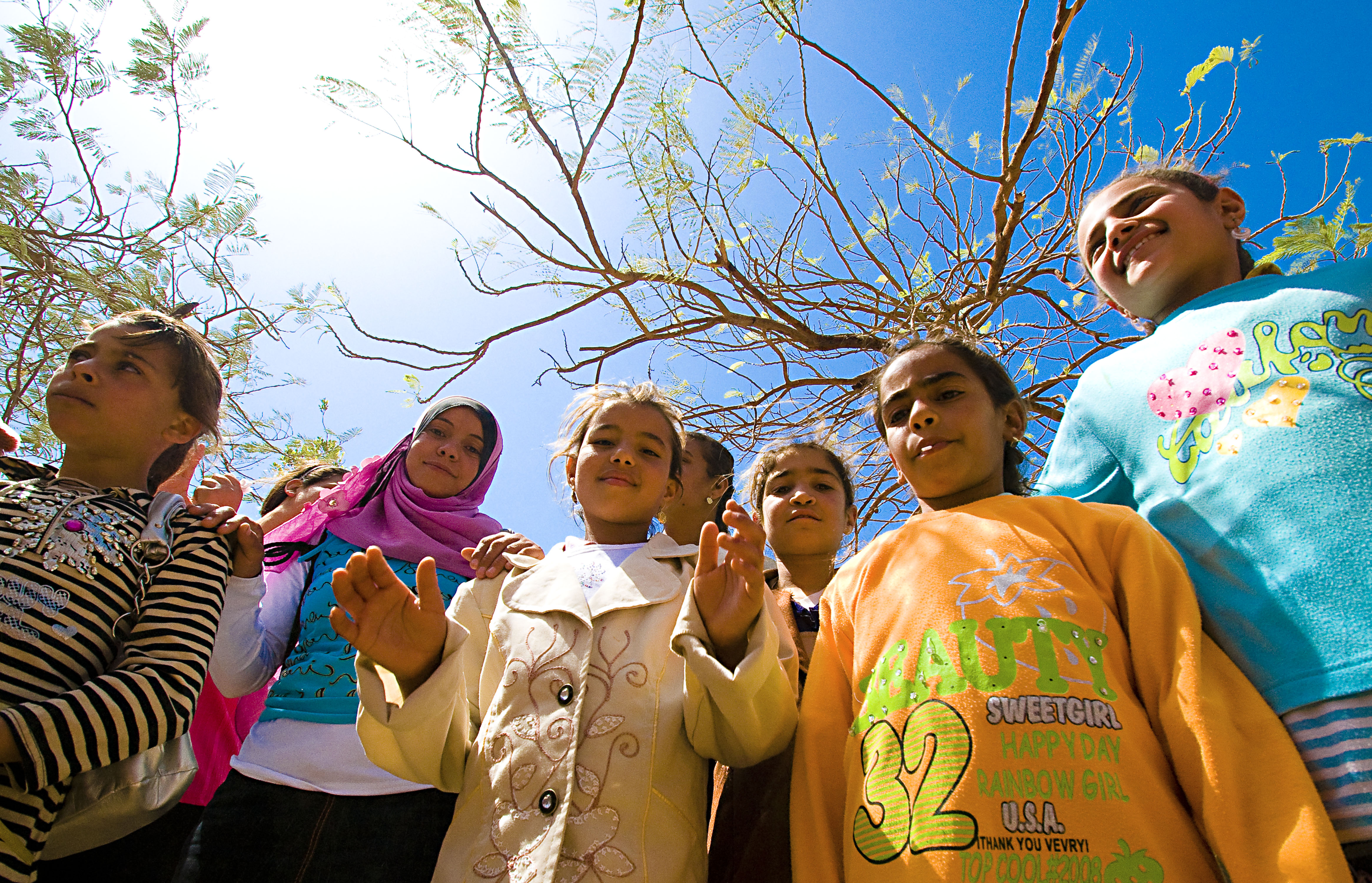
When I was young my older cousin played “wedding day” with a big white sheet. She was so happy in that moment. She could play because at eight years old a real marriage was still far away.
For too many girls in Egypt, the prospect of marriage is far too real at 14 to be a game.
We encounter girls as young as 13 who get married to relieve the financial burden on their families. When a child’s mother is left widowed with multiple children, marrying off her daughters becomes one of her only options.
In Egypt the minimum age for a woman to get married is 18. This was raised from just 16 in 2008. Despite the new law, we still see many girls who are getting married before they are legally, mentally, educationally, and emotionally ready.
Sarah* is a 14 year old girl in our Not Alone program. She lives with her widowed mother, two brothers and younger sister.
Sarah’s life got much better after becoming a part of Not Alone. But old habits and ways of thinking often live across generations, even when they no longer make sense. Sarah’s mother was married at 16 and sees early marriage as a normal part of life.
That’s a problem because few months ago, a much older man in their village asked Sarah to marry him. Everyone in the village respects him, so Sarah and her mother said yes.
Because Sarah is only 14 she isn’t legally able to marry. Her mother was determined to not let this opportunity pass, so she came up with a plan with the help of someone else in the village. She got Sarah a new government ID with a fake name and a fake age.
Everyone in the village knew it, including—believe it or not—the local priest. They tried their best to hide it from their Coptic Orphans Rep, who visited them every week from a neighboring village. The marriage was less than a month away when Sarah’s volunteer Rep found out about the scheme.
Sarah’s Rep pleaded with the mother and priest to stop the marriage, but he was getting nowhere. Finally, he convinced Sarah herself to wait until she finished her education. Her mother was not pleased. But what made the difference for Sarah?
Sarah realized that getting married, without an education, to a much older man, meant that Sarah would one day be left a widow who struggled to feed her own children, just like her mother had been before Not Alone.
Sarah also realized that the forgeries were wrong. She is currently planning to go back to school this Fall. She is having a difficult time getting documents with her real name and age, but these struggles are certainly nothing compared to an early marriage.
After all, if being married at 14 is no game, being left at 30-something with five children, no education or means of support, and a dying husband leaves a tragedy felt across generations.
For sure, any glance at the statistics below shows that the cycle of fatherlessness and poverty that Sarah escaped is far too common a reality in Egypt.
*Names and photos changed to protect the dignity and privacy of the families.
Child Marriage Facts
- In Egypt 30% of girls are married before the age of 18 (UNICEF)
- If present trends continue, 100 million girls will marry over the next decade. That’s 25,000 girls married every day for the next 10 years. (ICRW)
- Child brides may be more likely to contract STDs including HIV/AIDS, than unmarried girls. Young girls are more physically susceptible to STDs, have less access to reproductive education and health services and are often powerless to demand the use of contraception. (UNICEF)
- The leading causes of death for girls between the ages of 15 and 19 are pregnancy related. (UNICEF)
- Child brides are often isolated and denied education and employment opportunities, making it difficult for them break out of the cycle of poverty. (PBS)
- Child brides are more likely to experience domestic abuse, and violence than their peers who marry later. (PBS)
